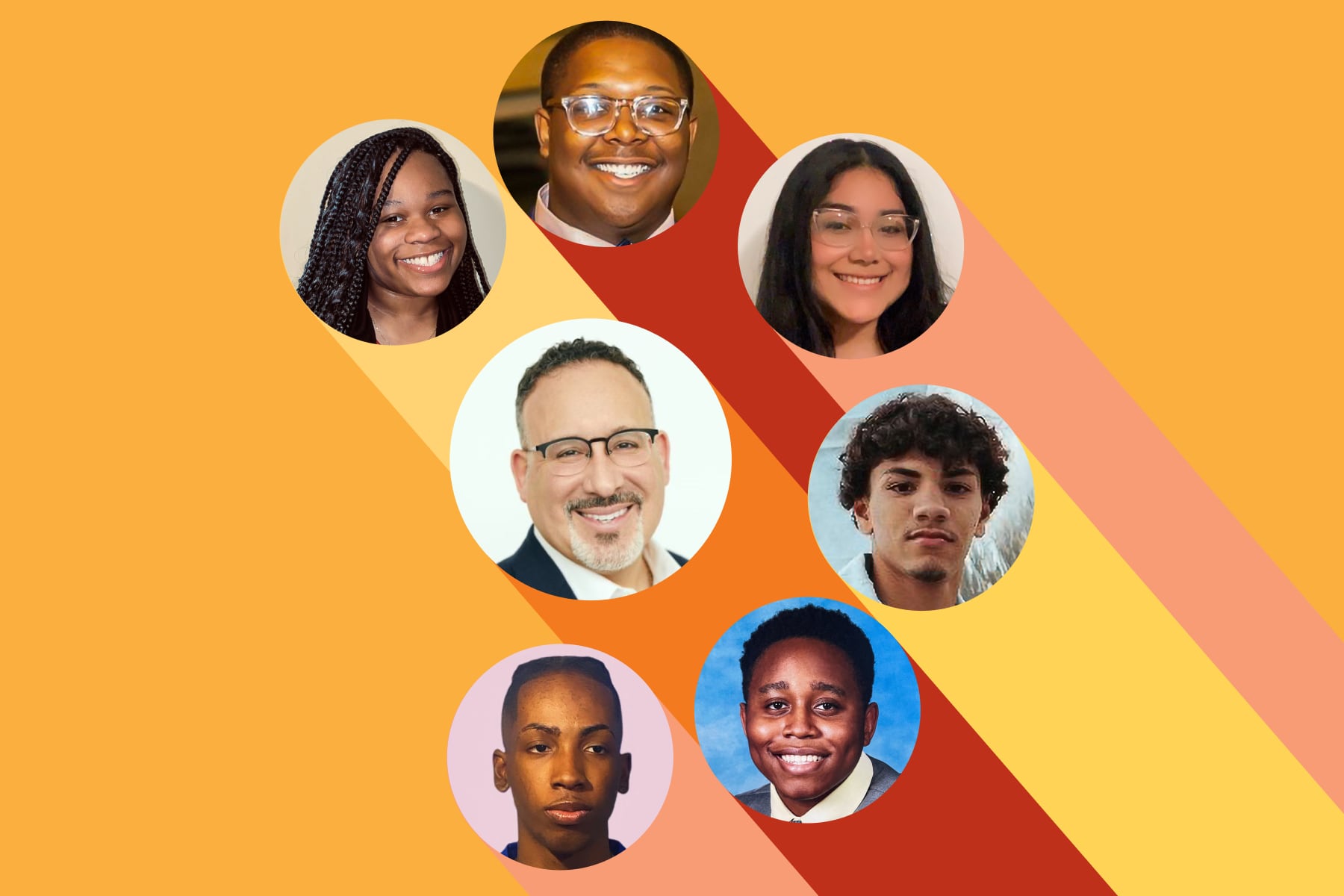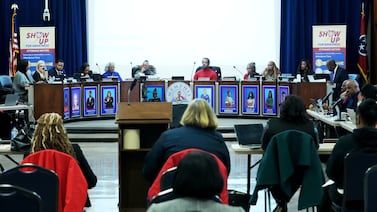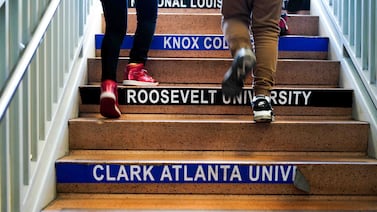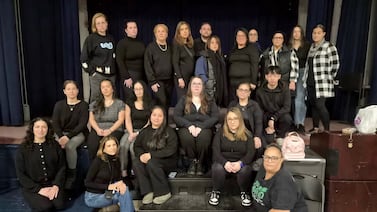After a year upended by the pandemic, six high school graduates from around the U.S. spoke to Education Secretary Miguel Cardona about their hopes for the future of education.
In a virtual event with The Education Trust and Chalkbeat that will stream on June 24, the students told Cardona about policy issues facing their schools and offered him advice of their own. On their minds were issues like the digital divide, the challenges facing undocumented students, and gun violence.
From Brownsville, Tennessee, to the Bronx in New York City, they offered Cardona a window into their lives as students — and challenged him about the ways schools have fallen short in their communities.
“Each student that was on the panel was from a different background,” said 17-year-old Chinaya Mason. “You never realize how much you can connect from a simple Zoom call. But us working together on Zoom calls and speaking to the secretary, that is a way to create change in a positive way.”
Chalkbeat spoke to each student about how they navigated their senior year, their plans for the future, and what they wanted the education secretary to take away from their conversation. Here’s what they told us.
Trey Cunningham
Haywood High School, Brownsville, Tennessee

Growing up in rural Tennessee, 18-year-old Trey Cunningham was always aware that the big school district in nearby Memphis offered students things he couldn’t get in Haywood County. It served as a real-world lesson in inequity in education.
“Just now, because of the pandemic and the COVID relief money, we were able to provide students in the Haywood County School District with Chromebooks,” he said. “That was the first time that’s ever happened, where every student had access to a computer.”
Today, most students at Haywood High School are Black, but that wasn’t always the case. It was originally built for white students only. “There’s a lot of history here when it comes to race and education,” Cunningham said.
In high school, Cunningham was involved in student government and the NAACP, where he got a taste for working in policy and advocacy. He moderated the event with Cardona, which he sees as a chance for students to engage directly with people in power. “In education, students are the main stakeholders,” he said.
He hopes to use some of these skills in his future, too. In the fall, he’ll attend Tennessee State University and double major in health care administration and public health.
Kenneth Usoh
Science Skills Center High School, Brooklyn, New York
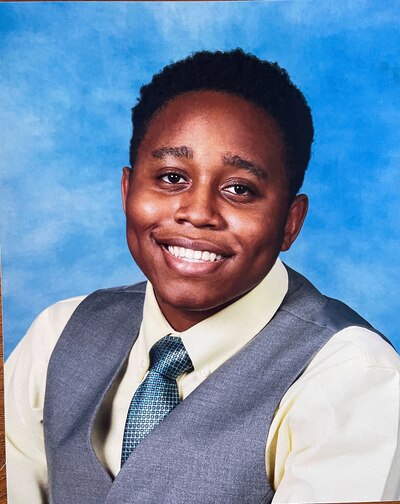
Early in the school year, Kenneth Usoh developed strategies to keep up with his school work while learning remotely. He worked on assignments during his lunch break and he read all the materials uploaded to Google Classroom to make sure he was prepared for tests.
But not all of his classmates were able to keep up with the demands of virtual school amid the stress of the pandemic.
“In New York, we have a grading system where if you’re not able to complete all the required assignments and pass with a 65 or higher, you receive an NX grade,” Usoh explained. “If the NX grade is still in your transcript, you’re not able to move onto the next grade or graduate. I noticed a lot of people have been getting those grades recently.”
Usoh has been tutoring some of his classmates to try to help them pass before graduation on June 24. But he’s noticed that the NX grades are not so much a reflection of the students, but rather their circumstances. “It’s not just my school,” he said. “It’s an entire New York City problem.”
This year brought other challenges. Usoh had a particularly hard time applying for college. He spent hours late at night trying to figure out different application and financial aid systems. His parents and guidance counselors helped him a lot, he said, but it would have been easier to work with the counselors in person.
Next year, Usoh will attend the seven-year Sophie Davis Biomedical Education Program at the CUNY School of Medicine where he’ll pursue a bachelor’s degree and an MD. He hopes to eventually become a neurosurgeon.
“What makes me optimistic is the fact that we were able to rebound off this pandemic and still be pushing through,” Usoh said. “I believe that this generation is a very resilient one.”
Elizabeth Jaramillo and Joaquin Martinez
Western International High School, Detroit, Michigan
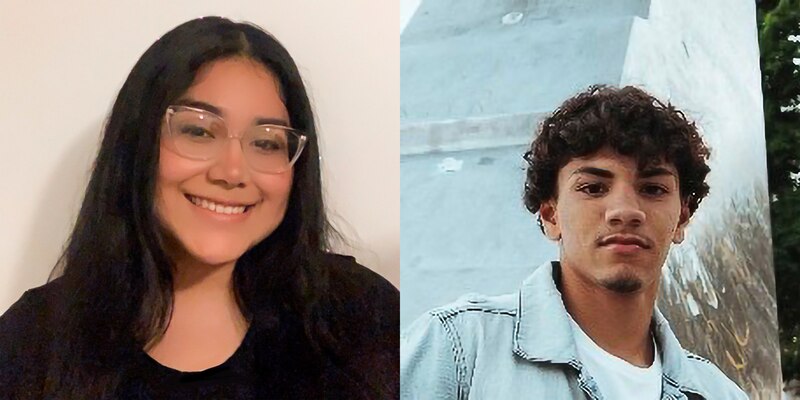
Elizabeth Jaramillo and Joaquin Martinez say they are lucky to have had opportunities that many of their peers didn’t. Both recent graduates of Western International High School in Detroit, Michigan enrolled in college support programs to help them navigate the application process and transition to college.
This fall, Jaramillo will attend the University of Michigan in Ann Arbor and Martinez will go to Kalamazoo College. They feel ready, but Martinez said that’s not the case for all of his graduating class.
“Unfortunately, not all of my classmates were able to receive these same opportunities,” Martinez said. “Without any experience or help, they are expected to navigate their way into the college system.”
Jaramillo agrees, and the experiences of her undocumented classmates have hit particularly hard.
“As we’ve gotten closer to the college process, a lot of students feared they wouldn’t be able to continue going to school,” she said. “It made me realize how privileged I am to not have that issue in my personal life, but it also brought to my attention how much these students struggle.”
In 2019, the superintendent of Detroit’s public schools declared the district a “sanctuary district,” meaning U.S. Immigration and Customs Enforcement officials cannot access schools without a warrant. The step is one Jaramillo would like to see everywhere.
“We are becoming less and less afraid to speak up about the issues that affect us — not only us, but also the communities around us,” Jaramillo said. “We know that our voices are empowering and we can use them for good.”
Chinaya Mason
Austin East Magnet High School, Knoxville, Tennessee
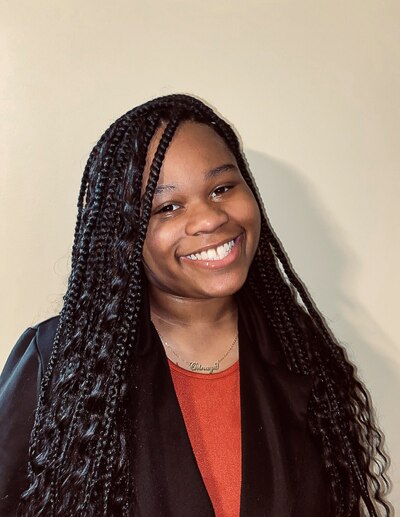
Chinaya Mason, a recent graduate of Austin East Magnet High School in Knoxville, said her school was like one big family. Like many families, they faced a lot of challenges together this year.
During the pandemic, Mason and her peers were in and out of the classroom, learning from home for a few weeks or a month at a time when COVID cases spiked. But even when they were together, they weren’t allowed to be as close as they used to be.
“We went from all being in the lunchroom talking to each other to eating in our classrooms where we would be like 10 feet apart,” Mason said. “You could only take down your mask for like 10 minutes and then mask right back up, for eight hours a day.”
The school also struggled with an even more heart-wrenching crisis. In the second semester, they lost five students to gun violence. Suddenly, Mason found herself unable to socialize much outside of the classroom, either.
“We have cookouts here and block parties,” Mason said. “That’s the way teenagers hang out. We went from having that to where your mom and your dad are like, ‘you’re not going here, you’re not going there’ because you never know who’s thinking what and who’s near you. Bullets don’t have eyes.”
Looking to her future, Mason thinks she might want to work in politics or be a civil rights attorney. She’s always been outspoken, she said, and she’s inspired by her work with the Education Trust and the National Achievers Society. Next year, she’ll attend Spelman College where she plans to study political science.
“Our generation is bold,” Mason said. “I think the fact that we use our voices in a million different ways, I think that’s going to be a good thing for the future.”
Zadane Russell
Academy for Scholarship and Entrepreneurship, Bronx, New York

As he gets ready to graduate from the Academy for Scholarship and Entrepreneurship in the Bronx, 17-year-old Zadane Russell is still deciding where he’ll go to college and what exactly he’ll study. But he knows that, one way or another, he wants to help people succeed.
Growing up in Jamaica, Russell said he saw that financial illiteracy was a big problem holding people back. “It’s hard to see people suffering and thinking, I could really help them if only they were taught how to save or where they should go banking or even how to do the stock exchange or how to handle loans,” Russell said.
Russell has taken a few classes on finance in high school, but he took these classes virtually and missed out on face-to-face interaction with his teachers. He believes young people need to know more about finance as they begin their adult lives, especially as they navigate paying for college and try to avoid crippling student loans.
Despite the challenges of this last year, Russell feels optimistic about the future. He sees his generation as one that’s innovative and driven to succeed. But he hopes his peers remember to look to previous generations and learn from them, too.
Otherwise, he said, “It would be like going out blindly, without the help of someone whose eyes are already open to what they’ve seen before.”

